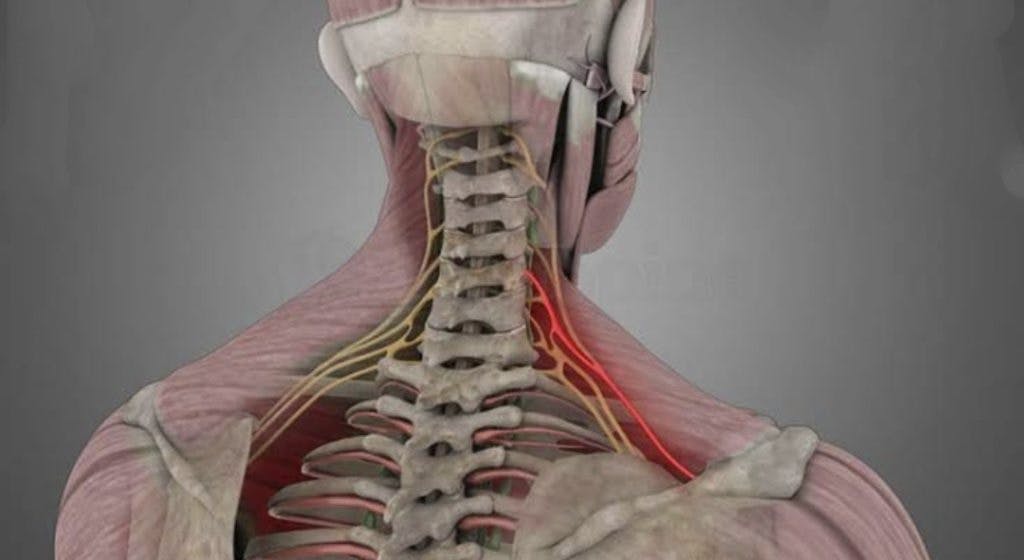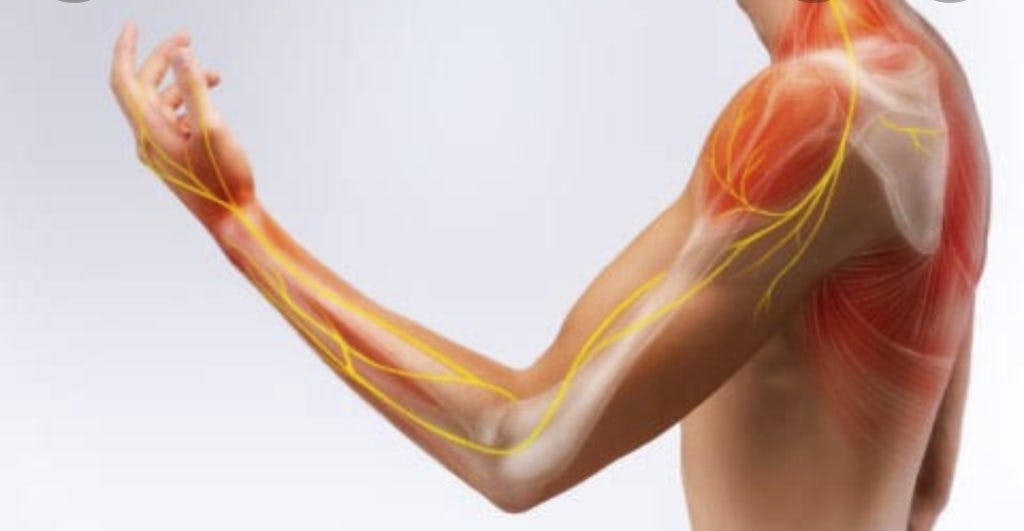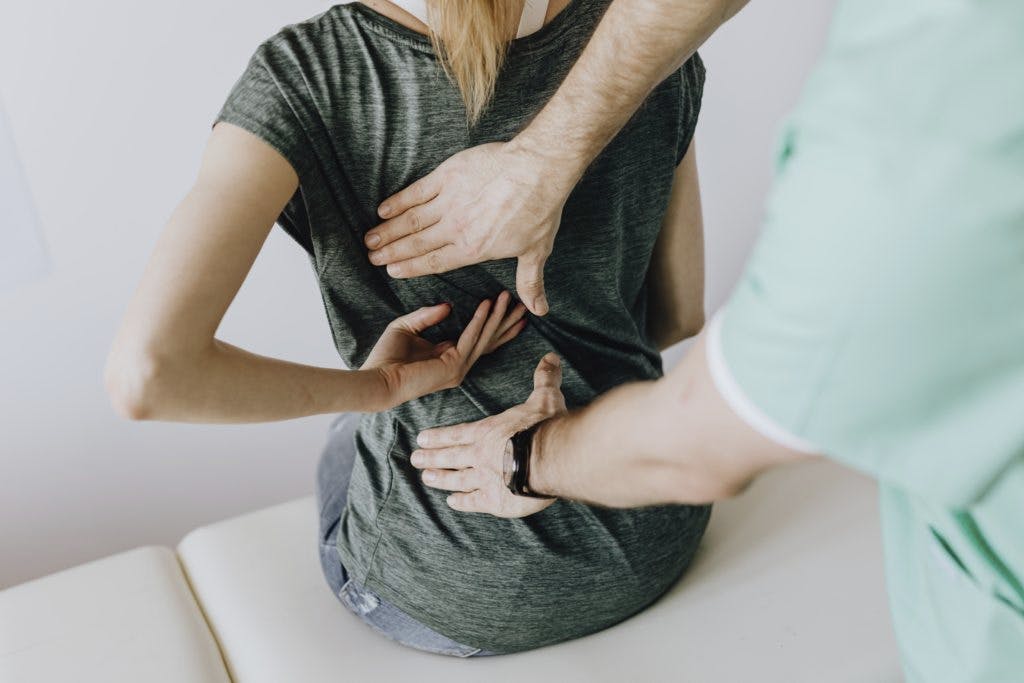Cervical radiculopathy is a condition that occurs when a nerve in the neck is compressed or pinched. This can lead to pain, numbness, or weakness in the arm and hand.
Cervical radiculopathy is also called a pinched nerve or herniated disc.
The condition affects an average of three in 10,000 people each year. It is more common in middle-aged adults, but it can occur at any age.

What causes cervical radiculopathy?
Herniated disc:
Cervical radiculopathy is most often caused by a herniated disc. A disc is a rubbery cushion that sits between the bones (vertebrae) in your spine. A herniated disc occurs when the outer layer of the disc ruptures and the inner layer bulges out. This can put pressure on the nerves in your spine and cause pain or weakness in your arms or legs.
A bone spur:
A bone spur is a bony outgrowth that can form on the bones of your spine. As you age, the bones in your spine may start to rub against each other and wear down. This can cause a bone spur to form.
A thickened ligament:
The ligaments are the tough, fibrous bands of tissue that connect your bones together. A thickened ligament can narrow the space through which your nerves pass and cause pain or weakness in your arms or legs.
What are the symptoms of cervical radiculopathy?
The symptoms of cervical radiculopathy vary depending on which nerve is compressed. The most common symptom is pain that radiates from your neck into your shoulder or arm.
The pain is usually worse with certain activities, such as lifting your arm over your head. Other symptoms may include:
- Numbness or tingling in your arm or hand
- Weakness in your arm or hand
- A feeling of heaviness or cramping in your arm or hand
- Loss of coordination in your arm or hand

How is cervical radiculopathy diagnosed?
Your doctor will ask about your symptoms and medical history. They will also do a physical exam. During the exam, they will check for weakness, numbness, or tingling in your arms or legs. They may also test your reflexes.
Imaging tests may be used to diagnose cervical radiculopathy. These tests can help your doctor see the structures in your neck, such as your bones, discs, and nerves. Imaging tests may include X-ray.
Who treats cervical radiculopathy?
Cervical radiculopathy is usually treated by a physical therapy. Physical therapy can help relieve pain and improve your strength and range of motion. Your physical therapist may also teach you exercises to do at home.
How Can a Physical Therapist Help?
Your physical therapist will develop a treatment plan based on the findings of your initial evaluation, that may include:
Manual therapy:
Manual therapy is a type of physical therapy that uses hands-on techniques to relieve pain and improve the range of motion.
Exercise:
Exercise can help improve strength, range of motion, and function.
Electrical stimulation. Electrical stimulation is a therapy that uses electrical currents to relieve pain.
Ultrasound:
Ultrasound is a therapy that uses sound waves to reduce inflammation and promote healing.
Posture education:
Poor posture can contribute to pain and weakness. Your physical therapist will teach you how to improve your posture to help relieve your symptoms.
Ergonomic education:
Ergonomic education is a type of therapy that teaches you how to adjust your environment and your activities to avoid making your symptoms worse.
Pain management:
Your physical therapist teaches you pain management techs.
Pain management techniques can help you cope with your pain and improve your quality of life.

At The End:
Cervical radiculopathy can cause pain and weakness in your arm or hand. Physical therapy can help relieve pain and improve strength and range of motion.
You just need to find best physical therapy centers near you.
Austin Physical Therapy Specialists also offers excellent content on therapies for cervical radiculopathy.
Check out the website for more information: https://austin-pt.com
Thank you!!!
